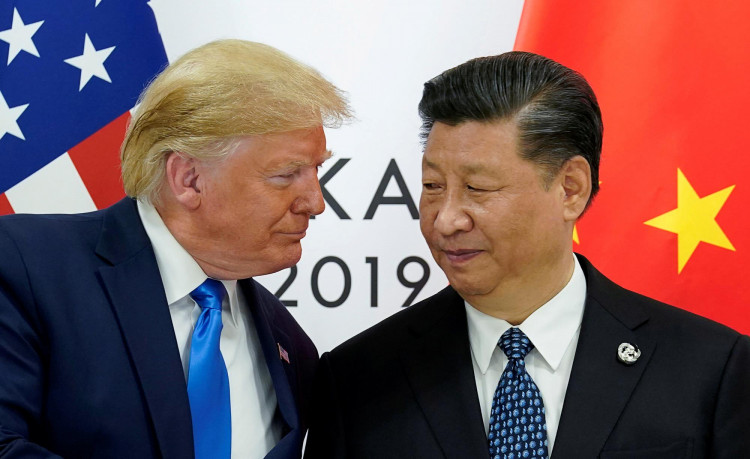Chinese President Xi Jinping has declined an invitation to attend President-elect Donald Trump's inauguration on January 20, sources familiar with the matter told multiple outlets. The decision underscores the strained relations between the U.S. and China, as Trump prepares to reenter the White House amid ongoing trade disputes and tariff threats.
According to reports from CNN and CBS News, Trump extended the invitation shortly after his election victory, a move described as unconventional given that no foreign head of state has ever attended a U.S. presidential inauguration. Traditionally, foreign governments are represented at the event by their ambassadors. In line with this protocol, China's ambassador to the U.S. and his spouse are expected to attend on behalf of Beijing, along with additional officials.
"This is a very interesting move by Trump that fits very well with his practice of unpredictability. I don't think anyone expected this," Lily McElwee, deputy director and fellow in the Freeman Chair in China Studies at the Center for Strategic and International Studies, told CNN. She described the invitation as a "symbolic carrot" aimed at fostering dialogue but acknowledged it was unlikely to alter the tone of the relationship significantly.
Trump appeared to defend his decision during an appearance at the New York Stock Exchange, acknowledging the risks of such an invitation. "Some people said, 'Wow, that's a little risky, isn't it?'" he remarked. "And I said, 'Maybe it is. We'll see.' But we like to take little chances."
Despite Xi's decision not to attend, Trump emphasized his willingness to engage with the Chinese leader. "We have a good relationship with China. I have a good relationship," Trump told CNBC, adding that the two had been in discussions, though he declined to elaborate.
The backdrop to this diplomatic exchange is a tense trade relationship. Trump has vowed to impose additional tariffs on Chinese goods, citing concerns over trade imbalances and illicit activities. Last month, Trump took to Truth Social to announce a proposed 10% tariff on Chinese imports, citing the flow of drugs into the U.S. as a justification. "Drugs are pouring into our Country, mostly through Mexico, at levels never seen before," he wrote. "Until such time as they stop, we will be charging China an additional 10% Tariff, above any additional Tariffs."
China responded sharply to Trump's tariff threats. A spokesperson for China's embassy in Washington stated on X, formerly Twitter, "China-U.S. economic and trade cooperation is mutually beneficial in nature. No one will win a trade war or a tariff war." In a speech earlier this week, Xi warned against escalating economic conflicts, stating, "There will be no winners in tariff wars, trade wars, technology wars."
While Trump's relationship with Beijing during his previous term was marked by contentious trade disputes, the Chinese government has signaled a willingness to cooperate with his administration. Xi recently called for "dialogue over confrontation" and "win-win cooperation over a zero-sum game" in a letter to the U.S.-China Business Council. However, the invitation to attend Trump's inauguration was seen by some analysts as more symbolic than substantive.
In addition to inviting Xi, Trump reportedly considered extending invitations to other international figures, including Hungarian Prime Minister Viktor Orbán. These overtures appear to be part of a broader effort to set an unpredictable tone for his second term.
The decision to decline the invitation highlights the ongoing challenges in U.S.-China relations, which have been further strained by Trump's trade policies and rhetoric. Economists and international experts warn that the proposed tariffs could have destabilizing effects, potentially increasing prices for U.S. consumers while deepening inflationary pressures. Over the summer, a group of Nobel laureates wrote an open letter warning about Trump's economic policies, describing them as potentially "destabilizing."






